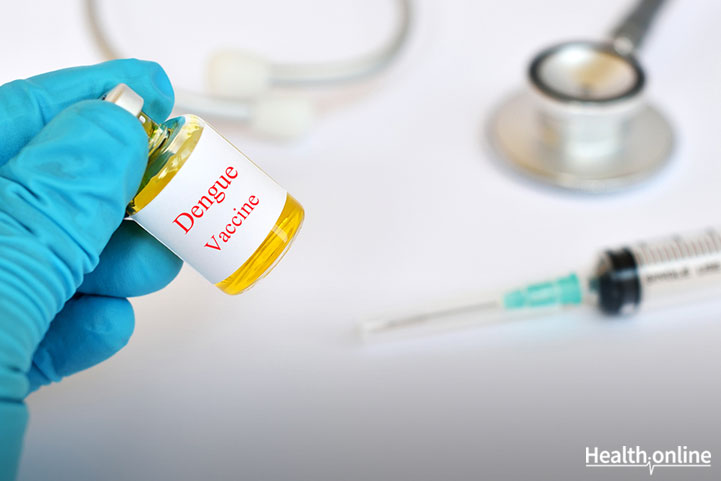
Dengue Disease Vaccine
Rationale
Dengue is a viral infection transmitted to humans through the bite of an infected Aedes mosquito. It is not transmitted directly from person to person. Nevertheless, the virus which replicates in an infected individual can be transmitted to other humans through mosquito bites. Usually, the first symptom appears 4-5 days (maximum of 12 days) after the mosquito bite.
Dengue disease results in a wide range of symptoms including fever, headache, pain behind the eyes, muscle and joint pain, nausea, vomiting, swollen glands or skin rash. Symptoms usually last for 2-7 days. The disease can also be asymptomatic.
Occasionally, dengue can be severe and potentially lead to hospitalization and in rare cases to death. Severe dengue is characterized by high fever and any of the following symptoms: severe abdominal pain, persistent vomiting, rapid breathing, severe bleeding, bleeding in the stomach, bleeding gums, fatigue, restlessness, coma, seizure, and organ failure.
Due to possible death resulting from a dengue disease, it is very important that you avail of this vaccination.
Generic and brand names
The generic name is dengue tetravalent vaccine (live, attenuated). The brand name is: Dengvaxia.
Composition of the vaccine
Dengvaxia contains dengue virus serotypes 1, 2, 3, and 4 that have been weakened.
Mechanism of action
The vaccine works by stimulating your body’s natural defenses to produce its own antibodies against the viruses that cause dengue disease.
Schedule of administration
You will receive three injections. The first one is given at elected date, the second one is given six months after the first, and the third is given six months after the second.
Indications and usage
If you are less than 45 years old, you are urged to have this vaccination especially if dengue disease is endemic in your area of residence and/or work.
Precautions
- Adults above 45 years of age should not receive this vaccine;
- If you are under any immunosuppressive treatment, inform your medical doctor about it, and he/ she should postpone the administration of this vaccine until after 4 weeks of stopping the medication;
- If you experienced any health problem after receiving any form of vaccine in the past, narrate and relay this information to your medical doctor who will then carefully consider the risks and benefits of this vaccination.
Possible side effects
Serious allergic reactions
If you experience any of the following after receiving the vaccination, consult a medical doctor immediately:
- Difficulty in breathing
- Blueness of the tongue or lips
- A rash
- Swelling of the face or throat
- Low blood pressure causing dizziness or collapse.
Other side effects:
These side effects could take place within 3 days after the injection of the vaccine.
Very common (may affect more than 1 in 10 users) are the following:
- Headache
- Muscle pain (myalgia)
- Generally feeling unwell (malaise)
- Feeling of weakness (asthenia)
- Pain at injection site
- Fever
Common (may affect up to 1 user in 10):
- Reactions at the injection site: redness (erythema), bruising (hematoma), swelling, and itchiness (pruritus)
Uncommon (may affect up to 1 user in 100):
- Infections of the upper respiratory tract
- Dizziness
- A sore throat (oropharyngeal pain)
- Cough
- A runny nose (rhinorrhea)
- Nausea
- Skin eruption (rash)
- Neck pain
- Hardening of the skin at the injection site (injection site induration)
Dosage and mode of administration
The single dose vaccine consists of 0.5 ml, and it is injected under the skin (subcutaneously) of your upper arm.




